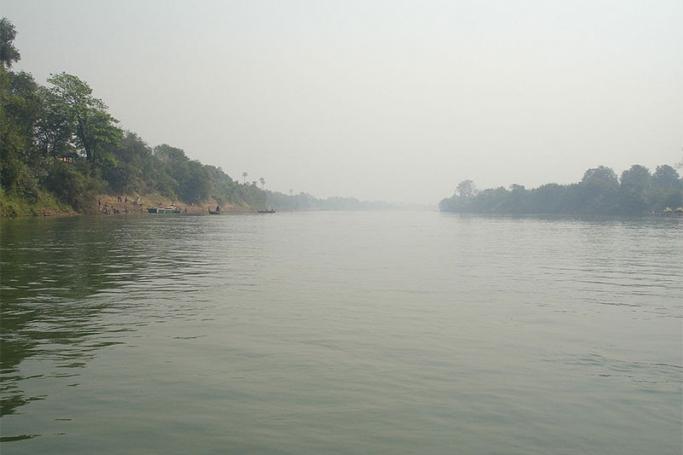The Norwegian state owned company, StatkraftNorfund Power Invest or SN Power, concluded an MOU for a project known as the Middle Yeywa dam with the previous government in July 2014. This dam is set to be built in a location that has been identified as “seismically hazardous” because it is close to the Kyaukyan fault line.
The three groups behind the statement, the Shan Human Rights Foundation, the Shan Sapawa Environmental Organisation and the Shan State Farmers’ Network, say they are very concerned that a study conducted by SN Power failed to take into account the on-going conflict in northern Shan State and how the dam will affect the conflict and whether the conflict would affect the dam.
“Fighting was raging in northern Shan State even while the pre-feasibility study was being conducted, but no mention was made of this. Particularly given the recent escalation of fighting in Kyaukme township (directly east of NawngKhio), where the Burma Army has launched a large scale offensive, with airstrikes, against Shan State Progress Party/Shan State Army positions just north of the Upper Yeywa dam site, we regard this as an inexcusable omission,” the statement noted.
In a report released earlier this year by the three groups the role of the Norwegian government and the state owned firm SN Power, in the controversial project was cited a proof that Oslo was pushing ahead without giving proper consideration to the situation on the ground. The report claimed that Norway, who is a major donor to Burma’s on-going peace process, is “opportunistically partnering with Naypyidaw to profit from ethnic conflict areas before peace has been reached.”
SN Power dam study overlooks dam impact say activists
Sai KhurHseng, a representative from the Shan Sapawa Environmental Organisation, one of the three groups that issued yesterday’s statement, said that he and his team have frequently visited the area where the dam is set to be built and are very aware of the situation on the ground.The SN Power failed to disclose the information to villagers who will be affected by the project.
“If they did a survey, they should report it to the public. But, this has never been published,” he said.
According to the statement the survey conducted by SN Power overlooked many of the impacts that the Yeywa dam and the other dams slated to be built on the Namtu River will have on the environment and the community. The statement noted that the “Initial Environmental and Social Impact Assessment only focused on the section of the river where the Middle Yeywa dam and its reservoir are planned. There is no consideration of the cumulative impacts of the cascade of five dams on the river, which is going to drastically alter the ecology of the river, and all those living along it. It is thus very misleading that the study states that a baseline for “all key environmental aspects” has been established,” and that the “River and inundated not a major source of food or resource.”
Reached for comment Sai Kheun Mai, of the Shan Human Rights Foundation (SHRF), told SHAN that many villages will likely be flooded by the dam. In one village alone more than 100 homes and about 200 fields are expected to be entirely submerged when the Upper Yeywa Dam is completed.
“There are 118 houses in Tarlong village and 472 residents will be affected by the dam,” he said. “All of their fields will be damaged.”
The groups say they want the Upper Yeywa Dam and other dam projects on the Namtu River to immediately be halted.
“Any future plans for hydropower development on the Namtu River must involve a transparent strategic impact assessment along the entire river,” said the statement.
The Middle Yeywa dam is one of four planned hydropower projects that are planned for the Namtu River. It is estimated that the Middle Yeywa dam will have the capacity to generate more than 700 megawatts of power.
Courtesy BNI
You are viewing the old site.
Please update your bookmark to https://eng.mizzima.com.
Mizzima Weekly Magazine Issue...
14 December 2023
Spring Revolution Daily News f...
13 December 2023
New UK Burma sanctions welcome...
13 December 2023
Spring Revolution Daily News f...
12 December 2023
Spring Revolution Daily News f...
11 December 2023
Spring Revolution Daily News f...
08 December 2023
Spring Revolution Daily News f...
07 December 2023
Diaspora journalists increasin...
07 December 2023
Naungcho to be transformed into tourist destination












